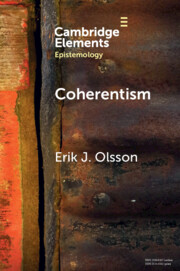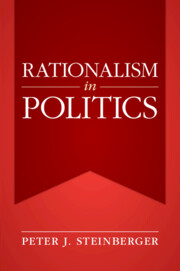Refine search
Actions for selected content:
7 results
9 - Adapting Consumer Law to New Technologies
- from Part III - Technology’s Disruptive Effects on Law
-
-
- Book:
- The Cambridge Handbook of the Governance of Technology
- Published online:
- 30 October 2025
- Print publication:
- 13 November 2025, pp 151-169
-
- Chapter
- Export citation

Coherentism
-
- Published online:
- 25 August 2022
- Print publication:
- 08 September 2022
-
- Element
- Export citation

Rationalism in Politics
-
- Published online:
- 11 August 2022
- Print publication:
- 25 August 2022
8 - The Genius of Command Responsibility
- from Part III - Illustration through Application
-
- Book:
- Justice in Extreme Cases
- Published online:
- 17 December 2020
- Print publication:
- 17 December 2020, pp 194-223
-
- Chapter
- Export citation
4 - The Coherence Theory of Justification
-
- Book:
- An Introduction to the Theory of Knowledge
- Published online:
- 11 November 2020
- Print publication:
- 26 November 2020, pp 70-90
-
- Chapter
- Export citation
Context, Intersubjectivism, and Value: Humean Constructivism Revisited
-
- Journal:
- Dialogue: Canadian Philosophical Review / Revue canadienne de philosophie / Volume 59 / Issue 3 / September 2020
- Published online by Cambridge University Press:
- 24 November 2020, pp. 377-401
-
- Article
-
- You have access
- HTML
- Export citation
15 - A Scientific-Realist Account of Common Sense
- from Part II
-
-
- Book:
- The Cambridge Companion to Common-Sense Philosophy
- Published online:
- 06 November 2020
- Print publication:
- 19 November 2020, pp 333-351
-
- Chapter
- Export citation
